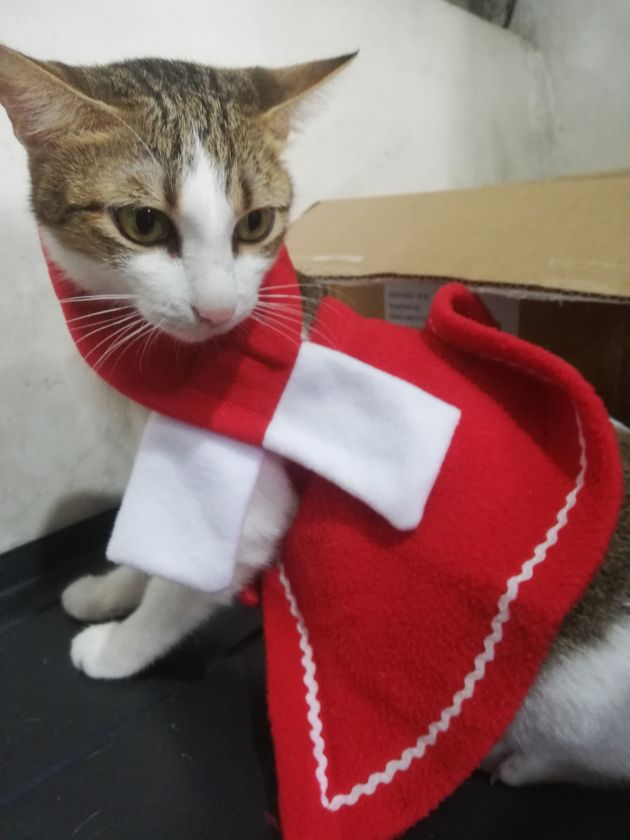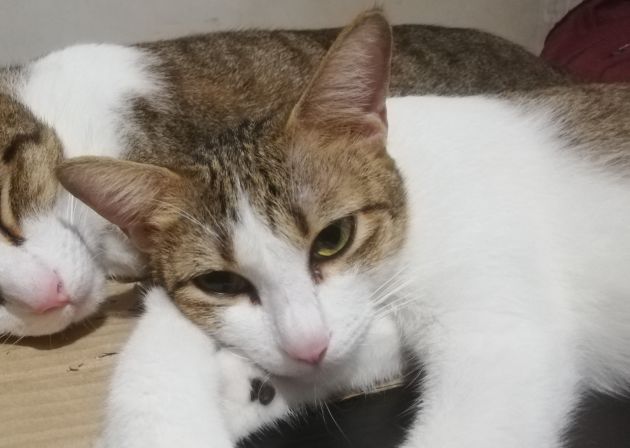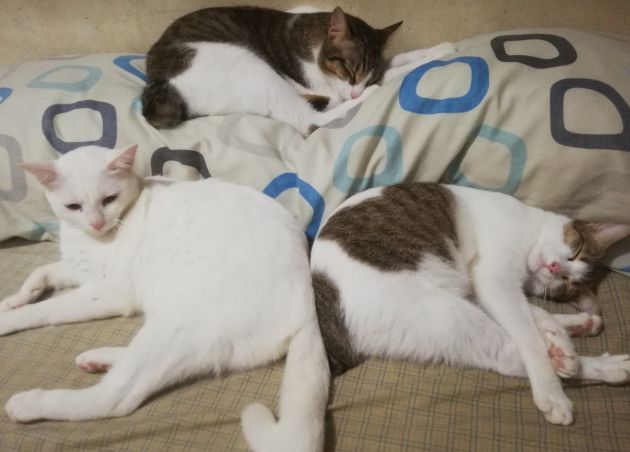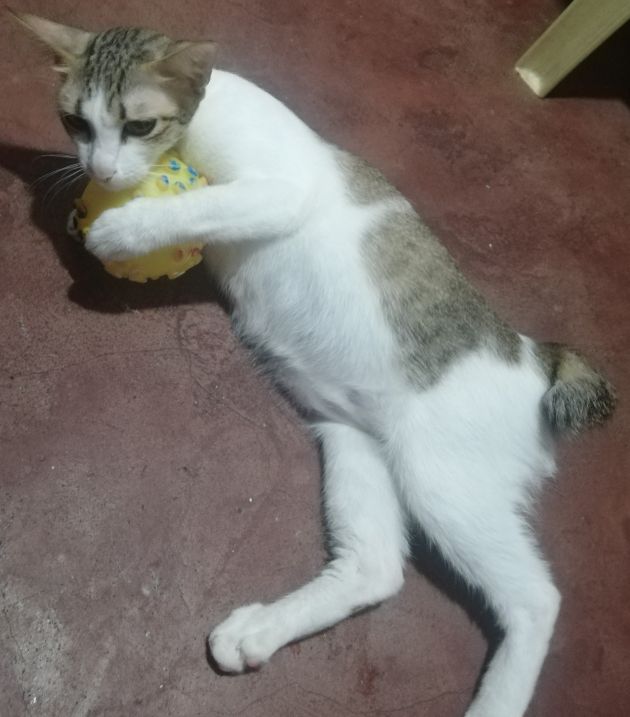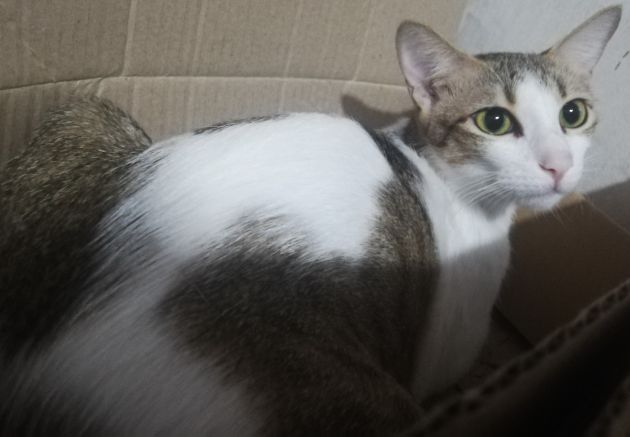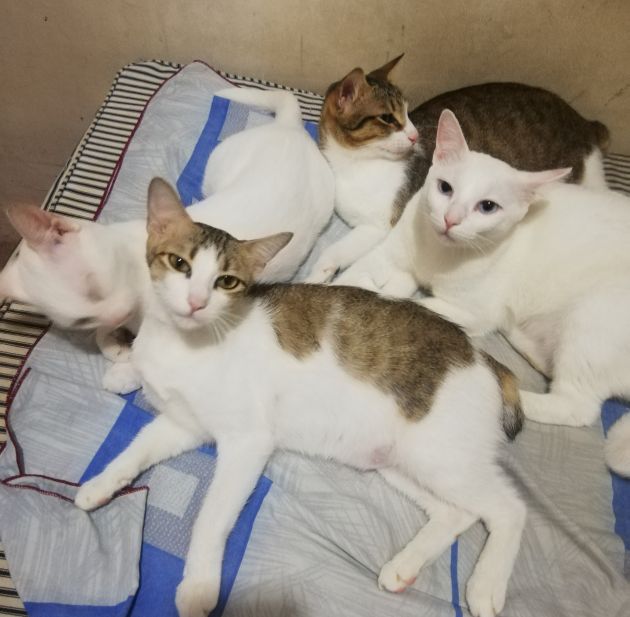Please Help Our Sweet Lingling Survive FIP
Fundraising campaign by
Mar Anthony dela Cruz
-
US$0.00raised of $2,100.00 goal goal
Campaign Story
Hi everyone! Our sweet fur baby Lingling* was diagnosed with "wet" or effusive feline infectious peritonitis (FIP) on March 27, 2021. The disease is progressive and almost always fatal.
The treatment requires 84 days of painful and very costly injections. One vial costs around $100.
I have no permanent job (I'm a writer and translator and a part-time lecturer) and only do freelance work. The pandemic has hit the Philippines hard, especially affecting cultural workers like us who can barely cover our monthly expenses.
That is why I am humbly asking for your prayers and financial support. Any amount will help us give our Lingling the beautiful life she deserves. I am kind of embarrassed to just ask strangers for help, so in return I would like to be your researcher if you have any writing or research project.
We don't have enough money to put food on the table, but we will fight for our Lingling whatever it takes. She's family, she's our baby, and we don't want to lose her. We have a long way to go. With God's grace, and with your help, our baby will survive.
For questions, clarifications, and more information (test results, etc.), you can message me here or email me at [email protected] or [email protected]
*Lingling is the nickname we gave to Liyab. In Filipino, "liyab" means "flame." She has two siblings, Ningas ("ember") and Alab ("blaze").
-------------------------
WHAT IS FELINE PERITONITIS?
Feline infectious peritonitis (FIP) is an important disease of domestic cats. It occurs worldwide in cats of all ages, but the disease is most common in young cats less than two years of age. Although FIP is not a particularly common disease, it is important because once a cat develops the disease, the outcome is almost invariably fatal.
WHAT CAUSES FIP?
FIP is associated with a viral infection called feline coronavirus. There are many different strains of feline coronavirus, which differ in their ability to cause disease. Previously there had been an attempt to classify these strains as either feline infectious peritonitis virus strains (capable of causing the FIP disease) or feline enteric coronavirus strains (essentially harmless strains mainly found in the intestinal tract). It is now recognized that feline enteric coronavirus strains can mutate (change) to the more harmful type of virus and cause FIP disease.
What clinical signs does a cat infected with FIP develop?
In cats that develop FIP disease, the first signs of illness may be very vague. Listlessness, lethargy, decreased or absent appetite, weight loss, and a fluctuating fever are commonly reported clinical signs. After a period of several days to a few weeks other symptoms typically begin to occur.
At this stage, most cats will develop the 'wet' or effusive form of FIP, which refers to the accumulation of fluid in body cavities; fluid may accumulate in the abdomen, leading to a swollen abdomen, or in the chest cavity, resulting in difficulty with breathing.
Some cats develop 'dry' or non-effusive FIP where little to no fluid accumulates. The dry form often involves severe inflammation in one or more organs including the eyes, brain, liver, intestine, or other organs of the body, leading to a variety of clinical signs. Many cats with non-effusive FIP will have ocular (eye) symptoms as their only clinical sign.
Once disease develops, most individuals deteriorate rapidly, although some cats remain normal for several weeks. Unfortunately, the disease will eventually result in death in almost every case.
Most cats exposed to feline coronavirus, even to the potentially FIP-inducing strains, are able to develop an immune response that protects them, therefore only a small proportion of infected cats actually develop clinical disease. However, as stated above, those that do develop the disease almost invariably die.
IS THERE ANY TREATMENT FOR FIP?
Historically, three major pharmacological approaches have been employed to treat FIP: (1) immunomodulators to stimulate the patient’s immune system non-specifically to reduce the clinical effects of the virus through a robust immune response, (2) immunosuppressive agents to dampen clinical signs temporarily, and (3) re-purposed human antiviral drugs, all of which have been unsuccessful to date in providing reliable efficacious treatment options for FIPV. Recently, antiviral studies investigating the broad-spectrum coronavirus protease inhibitor, GC376, and the adenosine nucleoside analogue GS-441524, have resulted in increased survival rates and clinical cure in many patients. However, prescriber access to these antiviral therapies is currently problematic as they have not yet obtained registration for veterinary use. Consequently, FIP remains challenging to treat.
(The above text is exerpted from https://www.ncbi.nlm.nih.gov/pmc/articles/PMC76717... and https://vcahospitals.com/know-your-pet/feline-infectious-peritonitis)
Organizer
- Mar Anthony dela Cruz
- Campaign Owner
No updates for this campaign just yet


